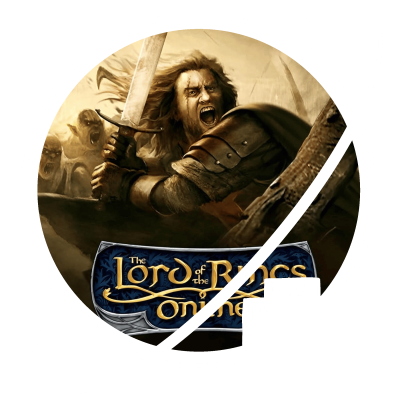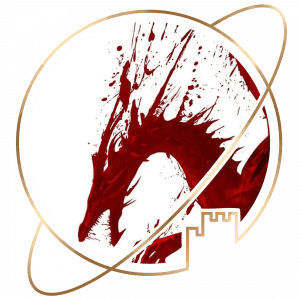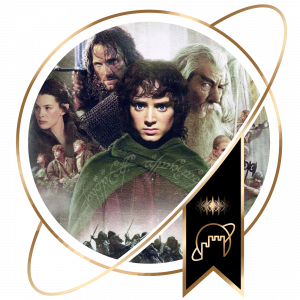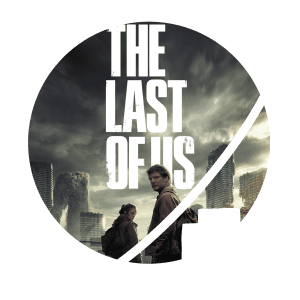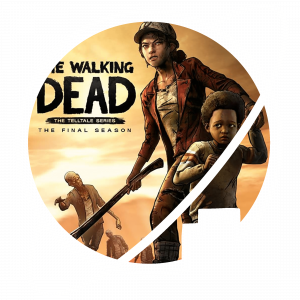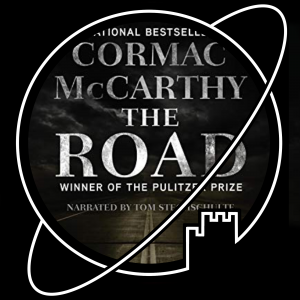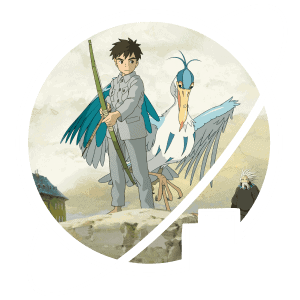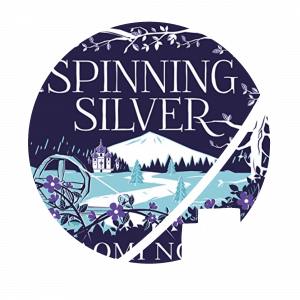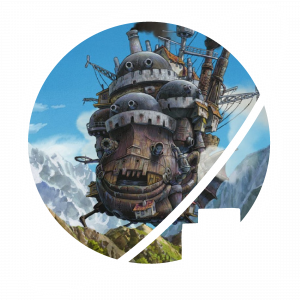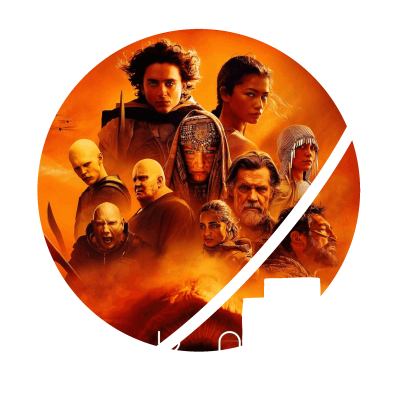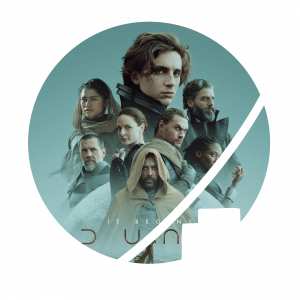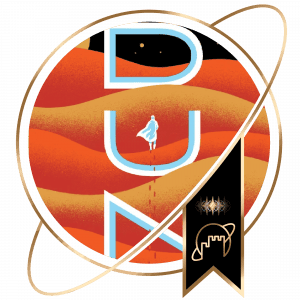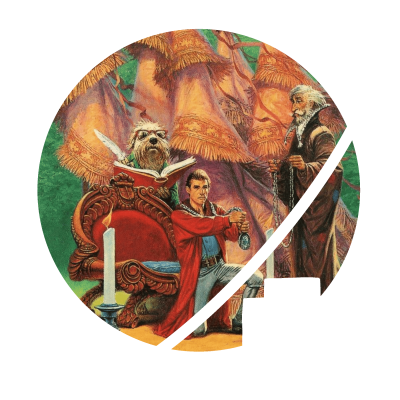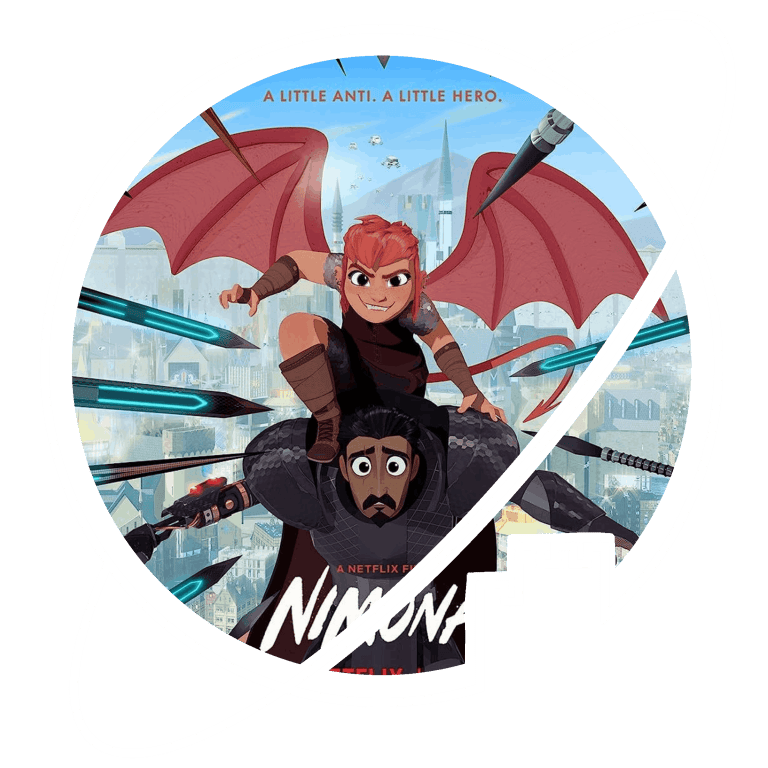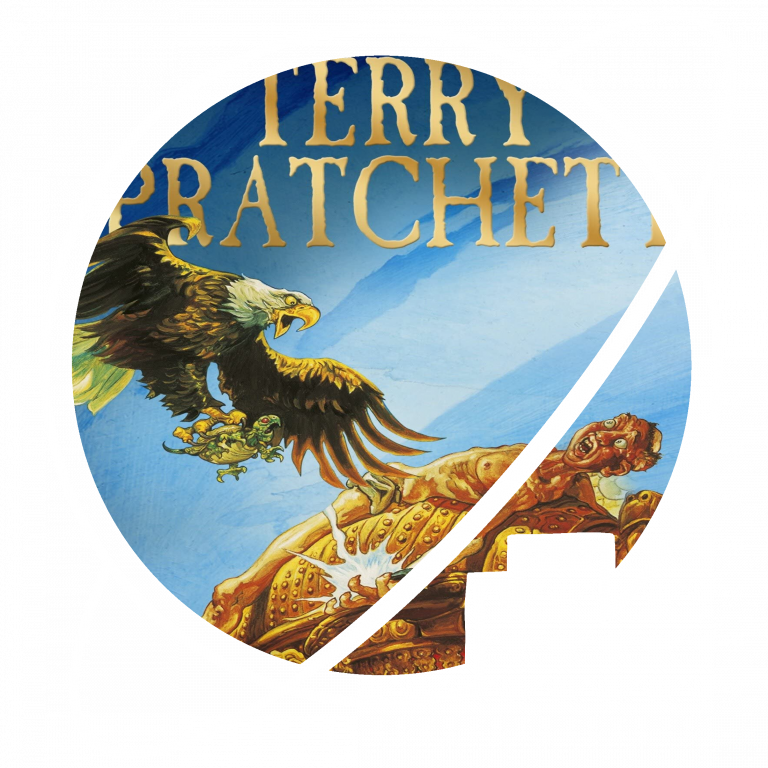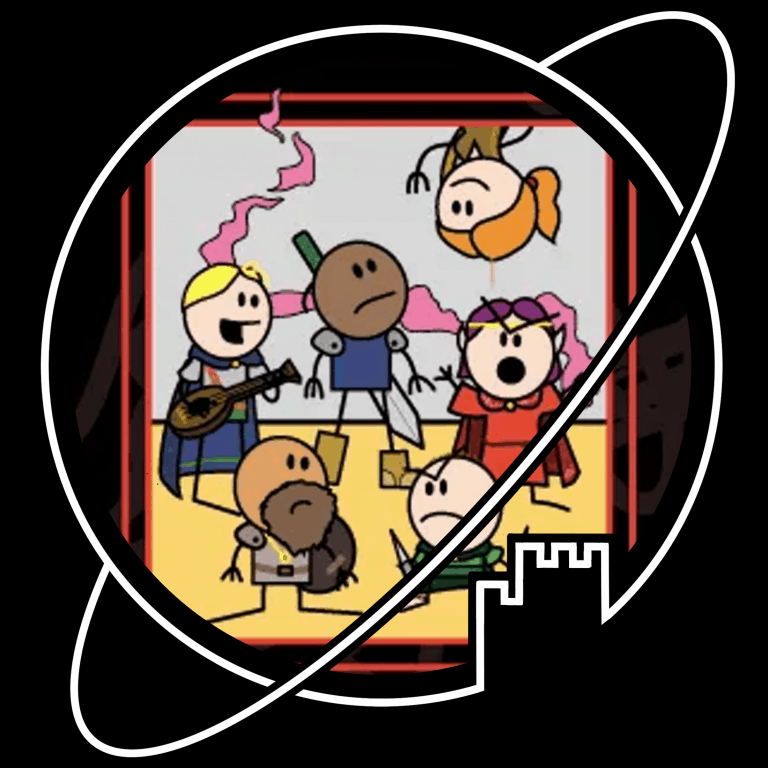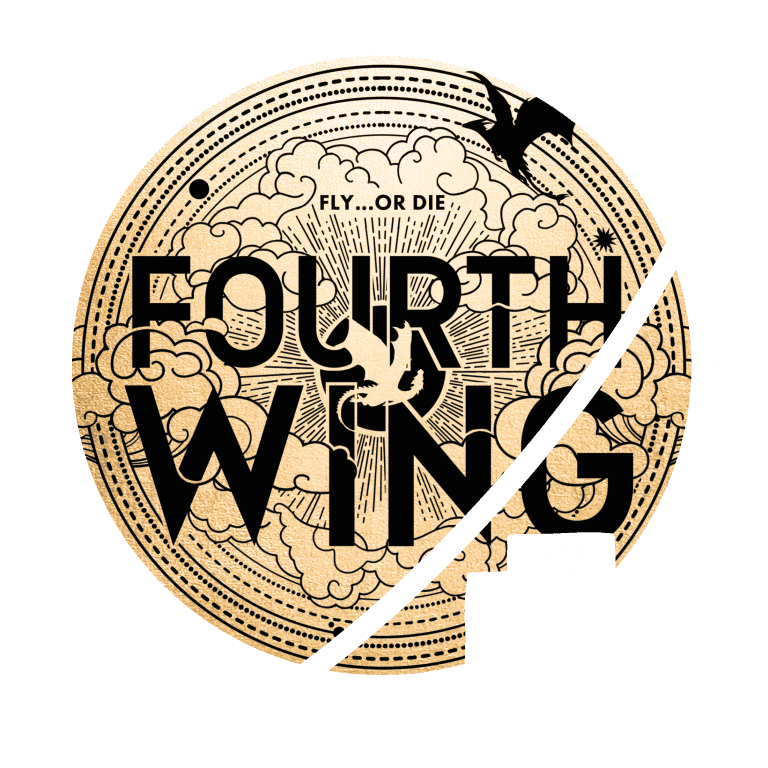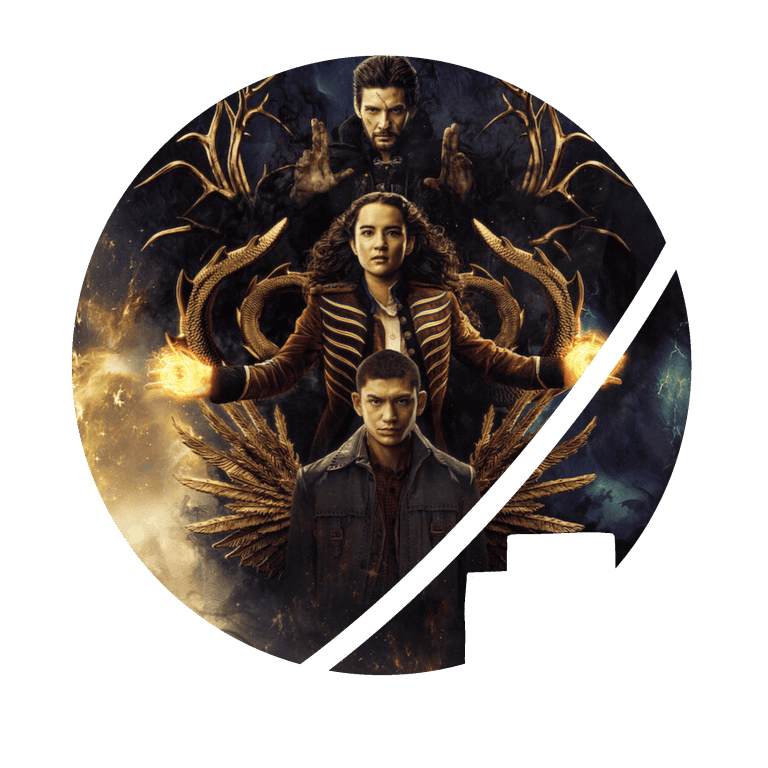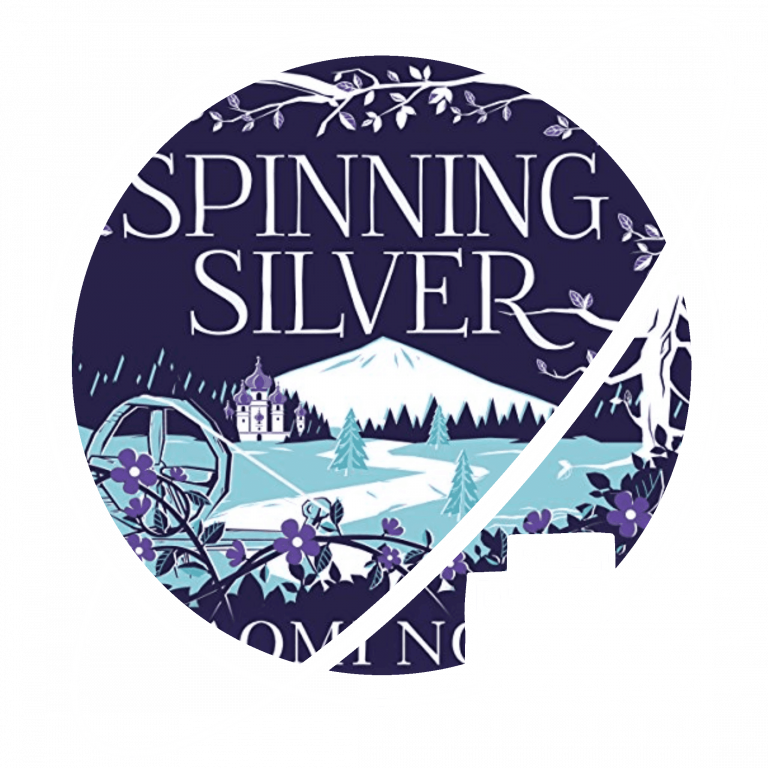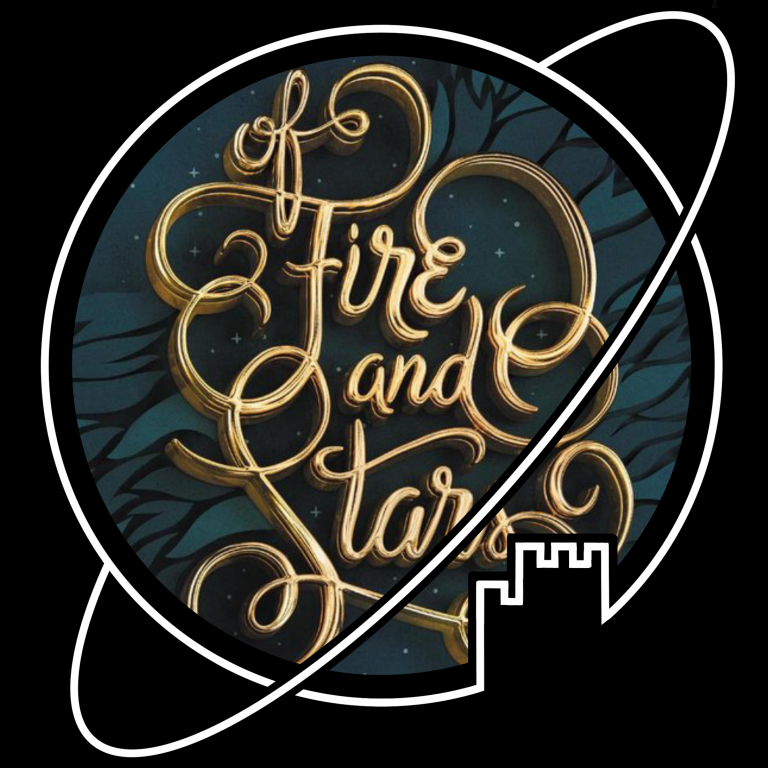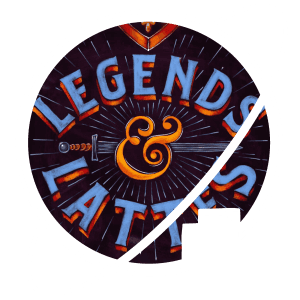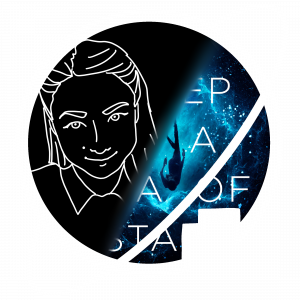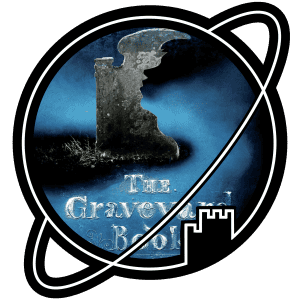Welcome to the Escape Velocity Collection!
We are an opinionated group of friends reviewing all sorts of fantasy and science fiction media. Don’t forget to get to know the curators and visit our curated Collection, where we discuss the stories that never cease to transport us to another world.
Will you escape with us?
LATEST POSTS:
- Video game developed by Standing Stone Games
- Published by Daybreak Game Company
- Released in April 24, 2007
- Massively multiplayer online role-playing game
- Platforms: Microsoft Windows, OS X
- Playing time: hundreds of hours. And they still release expansions!

Hearken to me! Too long have you sat in the shadows. After seventeen years, I feel it’s my duty to release you from this spell.
Yes, I was there, dear reader, I was there some seventeen years ago, just a wee little bairn skipping through her life and being entirely obsessed with The Lord of the Rings. When they first announced there would come an online role-playing game set in Tolkien’s Middle-Earth, it was never a question of whether I would buy it, but rather if my internet connection and PC would be strong enough to handle playing it. During the free early release, I quickly discovered my technical set-up was less than ideal. It took my character 10 long and laggy minutes to move from one NPC quest giver to another in the same street. But did this deter me? Not in the slightest. Because despite my aberrant gaming experience, I had seen this game’s glorious potential and had become enthralled. As such, after the early release had ended, I immediately took my saved money to buy the then available lifetime subscription for some 100 dollars. Now, seventeen(!) years later, it’s an investment I’m still very grateful for.
Not many people know this, but Lord of the Rings Online (or ‘LOTRO’ as the cool kids call it) might in many ways very well be the best adaptation of Tolkien’s writings. A bold statement, I know. Still, when it comes to faithfulness to its source material, this game does unequaled work. This pertains not only to the depictions of canon events and characters, but also to all the lore and worldbuilding the game developers add to it. They seem to know exactly how to stay true to the themes Tolkien found so important, as well as his dedication to details and specific sense of humour. Did Tolkien write about what the Dúnedain of the North were up to before they travelled south as the Grey Company? No, but it makes sense they fought their own battles against the forces of evil. Similarly, it makes sense that after the war, people would have to struggle with how to deal with the Easterlings, Haradrim and corsairs from Umbar who had no ways to return home.
Although I only play LOTRO casually (sometimes ignoring it for months) I’m always excited to return and see how the game developers give a voice to lands and characters that Tolkien only mentioned in passing, if at all. In the same line, I absolutely love how this game has grown. Not only in size – at first, you could only travel from Ered-Luin to the Misty Mountains, and from the Lone Lands to Angmar, while now continents as Rhovanion, Gondor and recently the lands of Umbar are also available – but also in spirit. I still feel immense glee everytime I encounter a black Gondorian, lesbian dwarf warriors or anything else that proves that diversity fits in Tolkiens world as much as the real world.
LOTRO delivers, I think, what most Tolkien fans secretly want: a way to explore his rich and beautiful world without limitations, as a character of their own making. A clever design choice is the fact that the story of the well-known characters such as Frodo, Aragorn and Gandalf often plays only in the background. Though you as a player might know what is happening, your character doesn’t and mostly has their own battles to fight. You don’t play second fiddle in that regard. Also, this decision allows for more creative storytelling with stakes that feel real, because you know the canon characters won’t suddenly steal your thunder. And believe me, the writing in this game is extremely good, not only the epic quests, but also the silly little adventures one might find in the Shire. Additionaly, some storylines still haunt me to this day, with emotional impact and plottwists that I wish would reach a greater public than is the case now.
So, does me giving this game five stars mean that it’s perfect. Well, no. Like I said, it’s already seventeen years old. The graphics can’t compare with modern day games, though I’ll argue that LOTRO can still be a very beautiful game in its own right. There are still times I halt ingame to take a look at the stunning landscapes, at least.
Another thing not everyone might like: this game is a MMORPG. This comes with clunky game mechanics I’m not always particilarly fond of, some elements of grinding, paywalls and people that say things in the world chat that you don’t think Samwise Gamgee would approve of. It’s possible to play most of this game solo, such as the main story, but there is also content that you can only complete in a group. For others, this might not be an issue, though.
If my essay did not fully convince you, I’ll urge you to still give Lord of the Rings Online a try. Its main storyline is free nowadays, so you only lose time if the experience is dissapointing. One last advice from me? If you happen to have a friend that might join you in adventuring in Middle-Earth, do invite them. When I started playing LOTRO as a child, I loved questing with my primary school friends. Though we’ve lost touch with eachother long ago, I still fondly harbour those memories to this day.
- Novel written by Richard Matheson
- Published in July 1954
- Standalone
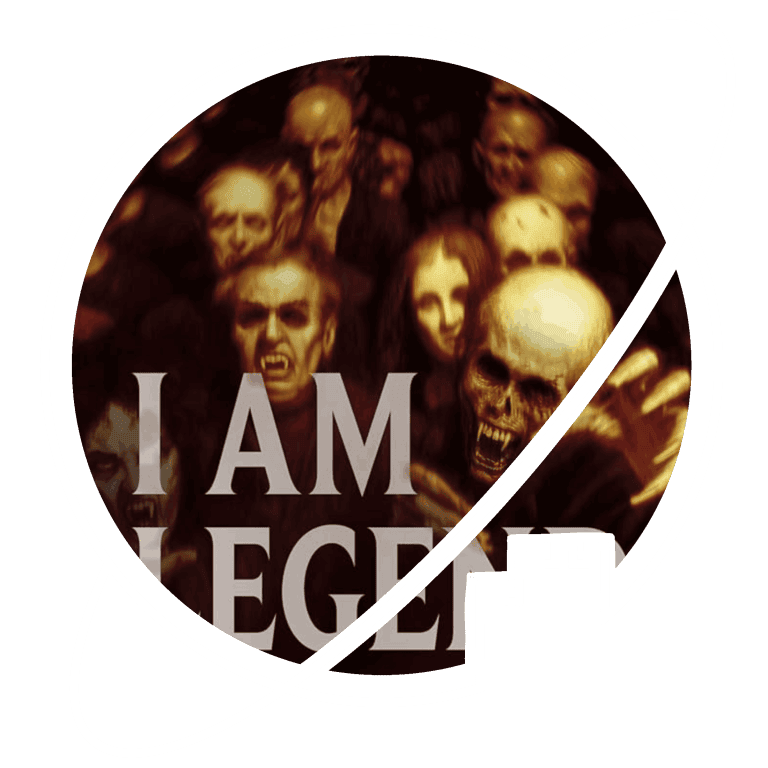

I think most people from my generation will associate the title above this review with the 2007 film featuring Will Smith more than with the 1954 novel that inspired it. I didn’t even know it was based on a novel until a couple of years ago. Well, I’ve read the novel now, and I am here to give you my thoughts on it.
I enjoyed I Am Legend for two different reasons.
First, I enjoyed it because unlike many other last-man-standing survivor stories, I Am Legend managed to paint a somewhat believable picture of a lone man struggling with loneliness, alcohol, and the frustration of having to take on the world alone, having to do everything yourself.
Where in many stories the chief emotion these people seem to feel is a melancholy sadness, Matheson’s main character, Robert Neville, is mostly depressed, and angry at himself, and at everything around him and at the unfairness of it all. As Neville develops over the course of the novel, your view of the world changes with it. It’s not a character driven masterpiece, but it works well.
The second reason I enjoyed reading I Am Legend is, whilst it has its unique characteristics, in some ways it feels like a relatively middle of the road zombie-apocalypse novel written last year – while being old enough to collect a pension. This is because it established so many of the tropes that are now the bread and butter of the genre.
For example, and the next paragraph contains slight spoilers, the idea of a disease that turns people into monsters globally – be they vampires or zombies or ‘walkers’ or whatever in-universe name is picked – is ubiquitous today. As far as I know, that trope was first used in I Am Legend.
Though the science itself is of course bogus (and the way Matheson uses it to explain the characteristics of his vampires makes you raise your eyebrows), it was novel at the time. In a way, it could be argued that Matheson invented the zombie apocalypse. It’s almost worth reading the novel just because of its role in the history of the speculative genre.
In conclusion, whilst it might not feel like a very original read, there are several good reasons to give I Am Legend a shot – not the least of which is that the only reason it doesn’t feel too original is that everyone who came after copied it.
Tagged:
See also:
- Novel written by Diana Wynne Jones
- Published in April 1986
- Part one of Howl's Moving Castle series
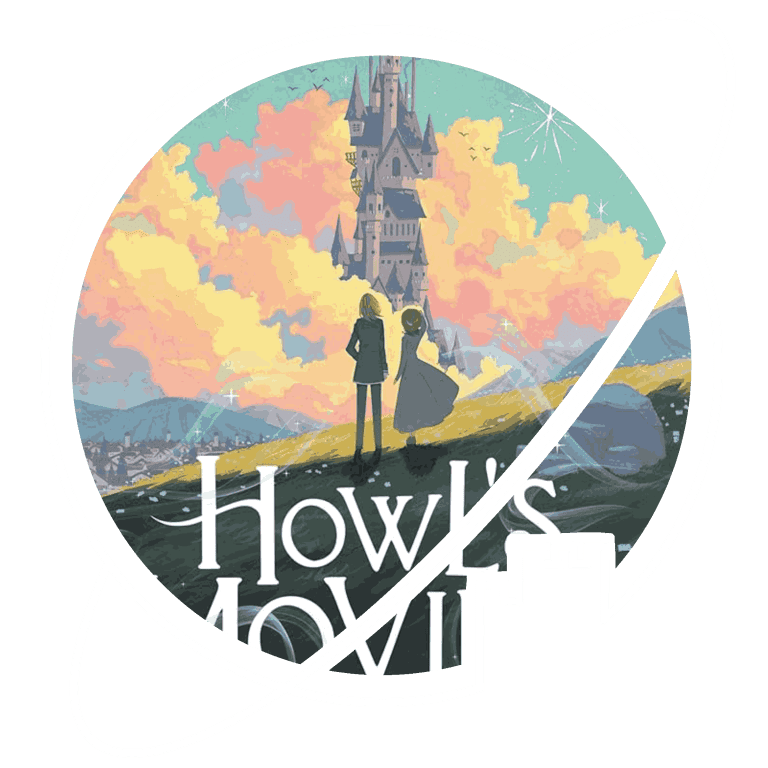

Listened to the audiobook with Kristin Atherton – good narrator, no specific comment.
As a rule, I really like to read the book before watching the adaptation, but in the case of Howl’s Moving Castle, I’m not even sure I knew the Ghibli movie was an adaptation and not an original work.
If you read my review of the Howl’s Moving Castle Studio Ghibli adaptation, you will find that my main gripe was that I couldn’t make any sense of the story, in particular the latter half. So I picked up the book a little while ago to see if I could remedy that. To be honest, I’m still not sure what the hell they were thinking in that adaptation. But that’s a rant for another time.
What I did find, however, was very charming fantasy book that has many of the same elements as the movie, except they’re arranged in an order and mutual relationship that results in a plot that makes sense from start to finish.
In fact, I really like Jones’ reversal of the standard ‘portal fantasy’-trope, where the story is not told from the perspective of the visitor, but rather from the perspective of the inhabitants of the world that is visited. I’m struggling to remember other examples of similar subversion – I’m sure there must some in The Chronicles of Narnia and if I remember correctly in The Neverending Story, both of which are interestingly children’s stories. In some ways, I guess Iain Pears’ Arcadia also qualifies.
Aside from this interesting quirk, Howl’s Moving Castle is a well-written, funny, and charming children’s book in a whimsical fairy-tale world that I would say is also worth picking up for adults. Especially with the Ghibli-imagery floating around in my head, I loved the world and the characters and really enjoyed the cozy atmosphere.
If only the adaptation had stuck to this version of the plot…

Like Peter, I also listened to the audiobook. Unlike Peter, I have a comment about this: I think it really added to my enjoyment of the book to actually hear Howl’s Welsh accent. Atherton also does a delightful little voice for Calcifer, which made me love the character even more than I might have had I read the physical book.
Like everyone, I had also seen the Ghibli movie well before I even a) realised it was based on a book and b) got around to reading said book. Because of this, I was slightly concerned that I wouldn’t enjoy the ways the book deviates from the movie. However, my worries proved completely unfounded.
Howl’s Moving Castle doesn’t play out exactly like the Ghibli film, but overall, it has the same vibe, and broadly, the story is the same. The movie clearly had to simplify the plot of the book, which is why it’s really nice to read how things actually play out. While wonderful, the movie absolutely gets confusing at times. The book has a much more understandable plot, which, while still slightly convoluted, never gets quite as confusing as the Ghibli movie.
On top of this, the movie adds an extra layer of complexity with the war that takes place in Sophie’s world. This is altogether absent in the book, and I don’t know if I agree with the choice to add it to the Ghibli film. The story works much better without another layer of politics and drama.
I really enjoyed the characterisation of Sophie, who refuses to take shit from anyone the moment she gets turned into an old lady. Howl, who is already vain and dramatic in the movie, turns out to have been even MORE vain and dramatic in the source material. On top of this, the man has a Welsh accent. A Welsh Accent! This is where I really think the audiobook enhanced the reading experience for me. I know what a Welsh accent sounds like, but I wouldn’t have been able to constantly imagine it while reading.
I’ve not been super impressed with the fantasy media I’ve been consuming lately (*cough* Fourth Wing *cough*). I‘ve been itching for some good fantasy stories that don’t feel like cheap imitations of other stories, or seem to be written only because certain “tropes” are popular on TikTok. Howl’s Moving Castle definitely scratched that itch, and I’m excited to read more of Jones’s work.
- Movie directed by Denis Villeneuve
- Based on the novel Dune by Frank Herbert
- Starring Timothée Chalamet, Zendaya, Rebecca Ferguson, Josh Brolin, Austin Butler, Florence Pugh, Christopher Walken, Stellan Skarsgård and others
- Released 1 March 2024
- Runtime: 165 minutes
- Part Two in the Dune movie trilogy

In my review of the first part of Denis Villeneuve’s Dune-adaptation, I described my near-religious experience when I finally got to see one of my favourite novels come to life on the big screen. Watching Dune: Part One is probably my very favourite cinema experience ever. I felt the first Dune-adaptation delivered at every turn, and I couldn’t wait for the second part to be released.
So how did Dune: Part Two hold up?
First: Dune: Part Two is an absolutely incredible cinema experience. Please don’t miss out on the opportunity to be rattled out of your chair by the sounds and positively run over by the visuals of this movie.
On the whole, Part Two ticks all the same boxes that Part One does: great visual design, stunning shots, terrifying and heartbeat-raising music, believable and moving character moments, and plot and logic that are barely within grasp.
There is one important difference though: Part Two is actually quite different from Part One in its adaptational choices. Where Part One is incredibly faithful to Herbert’s novel, Part Two deviates quite a bit more. To some extent, this was inevitable: a lot happens in the novel, politics and deception with layer upon layer of depth that just don’t hold up well in a movie adaptation.
That threw me off a bit when I watched the first time. Especially because Dune: Part One was so faithful, I kept expecting certain things to happen, which then didn’t.
But now that I’ve seen the movie a few more times, I understand the adaptational choices a lot better. The novel Dune needed streamlining to work as a movie, even if split into two two-and-half-hour behemoths. It is simply not possible to give every character and every scene from the book their due. Paul’s internal struggle needs to be made visual for the public. It needed to happen that way, because even as it is, I’ve gotten a lot of question on the how or why from people who’ve not read the books.
Some of Villeneuve (and screenwriter Jon Spaihts)’s choices are different from what I might have come up with. For example, they made Paul’s choices a lot more binary, a lot more clear cut. But I get what they did. They retained the cornerstones of Paul’s story, and told a streamlined version of what happens in between.
And that streamlined version of the story absorbs you as you watch it. I heard some people complain that Part One was a bit slow for their liking; Part Two keeps your attention every second. I feel like the pace is really high in between the scenes, but sufficiently slow during the scenes that there is room for character moments. There are enough juicy action scenes for the movie not to get boring, but the movie is not about the action. Dune: Part Two separates itself from other sci-fi blockbusters in being thought-provoking. Who are the good guys, at the end of the day?
I might have to admit that Dune: Part Two did not quite bring that semi-religious high I got from watching the first movie in the trilogy. There are a few nit picks that I don’t have the space to explore in this review. Overall, though, this is Dune brought to the big screen and it is amazing – and if you have not seen it yet, you are missing out on the sci-fi event of the year.

Let me preface my review with the caveat that – contrary to some other curators here – I’ve seen this second instalment of the Dune-series only once while writing this review. As with its predecessor, it was a delight to watch this movie on the big screen in Peter’s company. Unlike its predecessor, this movie had much more scenes with Zendaya, which – though her appearance would normally give any piece of content a great advantage when it comes to my appreciation of it – was all in all not enough to totally win me over.
Dune: Part Two is not a bad movie. However, now that I’ve had some time to think about it, I can also say with certainty that I don’t think it’s necessarily a good movie either. Though Peter mentions the pacing as one of Dune: Part Two’s strong points, in my experience the contrary was true. There were many times I felt the story was dragging, something I had less problems with during Dune: Part One. This might mostly be due to me having read the book. I have a tendency to root for underdogs in stories. Whereas the first movie, depicting protagonist Paul’s fall from power, was very engaging in that regard, in this movie it never really felt like he was out of control at any moment. His internal struggles – a big component in the book – fell somewhat flat on screen. Meanwhile, all his political opponents seem too distant to be a real threat to Paul and his goals.
Similarly, due to the first movie’s faithful adaption, I went into this movie with more expectations than I should have done. One of my favourite storylines in the book concerns my boy Thufir Hawat, a character that is painfully absent in Dune: Part Two. Though I certainly understand the creative choices that were made, such as omitting some storylines and simplifying others (let’s be frank (herbert), the book is quite a complex piece of work), I was not always happy to see them.
Still, even when I detach the movie from my experiences with its predecessor and the book, this changes little for me. Maybe Dune is ultimately not a story for me, despite me having a great fondness for many of its themes. Or maybe, it’s just the writing of this specific movie that doesn’t appeal to me.
The worms were once again a sight to behold though, and the acting was still great. By the way, did I already mention Dune: Part Two heavily features Zendaya?
- Book written by Terry Brooks
- Published 12 March 1986
- First book in the Magic Kingdom of Landover series

The first book I ever read from Terry Brooks – some twenty years ago – was the first book in his Shannara series. I vividly remember I hated it and did not even come close to finishing it. It left me with the conviction that Terry Brooks – although not necessarily a bad writer – was seemingly not capable of originality. Still, somehow I chose to pick up Magic Kingdom for Sale: Sold! some time later. This book proved much more to my liking, and I read most of its sequels.
Recently, I reread Kingdom for Sale: Sold! because I craved something comfortable and was feeling… nostalgic, I guess. And, even though I’m a little more critical than when I was a pre-teen, I’ll confess I still very much liked the concept of this series. There is just something very charming about a cynical lawyer protagonist that winds up as a king in a fantasy kingdom with both whacky and sinister elements. I can’t say too much without spoiling things, but Terry Brooks manages to balance different tones quite well in this series, especially after establishing the specifics of his worldbuilding.
Is Kingdom for Sale: Sold! a masterpiece? No, I don’t think so. At times it has a tendency to repeat itself, negatively impacting its pacing. It also lacks the emotional depth I usually look for in my media. However, its characters are very fun and/or cool (a certain dragon and hag come to mind). It’s a book that after all those years still managed to make me chuckle, and that’s quite powerful in these trying times. Additionaly, I remember the sequels introducing some pretty neat plot twists and worldbuilding aspects, so I’ll probably pick them up when I come across them again. This probably means you should also give this book a chance when you come upon it. The Prism Cat knows The Magic Kingdom of Landover books deserve it more than the Shannara series.
- Book written by Laura R. Samotin
- Published 7 May 2024
- Standalone (so far)
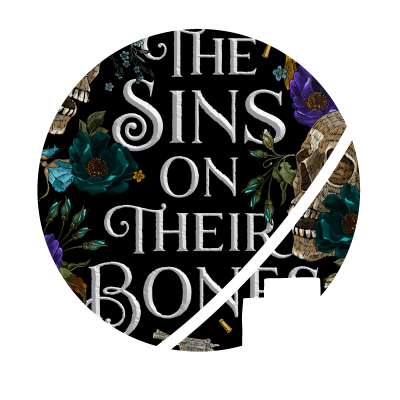
Full disclosure: we received a free advance reading copy for The Sins on Their Bones.

I had a hard time assigning a star rating to this book. Overall, I think three stars is suitable.
At the start, I really enjoyed The Sins on Their Bones. Samotin does an excellent job of setting the scene. Despite the story starting somewhat in the middle, or even after a lot of the events in the story, you get a good sense of the characters, the world and the plot.
However, there were a couple of things that made it hard for me to fully enjoy the book.
My first issue is the amount of sex scenes. I know “spice” is hugely popular among certain readers these days, and in and of itself, sex can have a place in a story. However, there are so many sex scenes in this book, to the point that they take up valuable space where we could have had some story instead. Eventually even one of the characters remarks that two people are busy banging when they REALLY should be on their way to move the story forward. It’s not until almost halfway through the book that they stop boning and get to the point.
My second issue is that while Samotin does a pretty good job starting the story in media res, we don’t really get enough throwbacks to the events that happen before the book starts to really experience them. Mostly the events just get mentioned, and they sound pretty cool! As the end of the book has some set-up for a sequel, I am left wondering why The Sins on Their Bones itself isn’t the sequel to another book. This would have given us more time to see characters fall in love, instead of just being told that they’ve had feelings for a long time. There’s plenty of interesting material and story for a first novel, so I didn’t quite understand the choice to begin the story where it does until I read the acknowledgements. The author does explain her reasoning here, but perhaps as an editor, I would have recommended a different approach to the story.
Partly because of these factors, I feel the pacing in The Sins on Their Bones is off. The beginning drags on for too long, and the ending is quite rushed.
In her Author’s note, Samotin expresses that one of her main goals with the book was to convince her audience of how interesting a story about Jewish folklore and myths can be. In this, I would say she has definitely succeeded. I was also happy to see a fantasy world in which queer characters are portrayed as completely normal.

The Sins on Their Bones has a pretty good marketing blurb, but unfortunately, I found it more frustrating than enjoyable to read.
The premise and setting bring all the ingredients for an exciting and original tale. Late 19th-century Eastern Europe is not exactly a well-explored backdrop for fantasy stories, and I actually liked that the story starts after our protagonist already lost the war and has had to retreat into exile. I feel like many authors would have felt the need to write the story during the war first; but the necessary details are conveyed through flashbacks and memories; it worked surprisingly well and is a relatively novel take. Great ideas to start the book with!
Unfortunately, that’s about as far as my positive impressions go. My lists of complaints is a lot longer. If I had to sum it up in a single sentence, it is that most elements of the novel are underdeveloped, and the parts that Samotin does spend a lot of effort on, made me want to put the book away rather than read it.
Let’s get into a bit more detail.
First, I think the plot is bad. No point sugar coating it. I recognise it was never going to be the book’s selling point, so I get that it wasn’t the author’s focus. But I found myself rolling my eyes pretty frequently.
The Sins on Their Bones feels like it is written entirely on the fly, with no effort spent to plant the seeds for problems or solutions before they become apparent. This is especially noticeable in the placement of flashback scenes or descriptions of the past, which give characters a motivation or required information to do a thing, right before the plot requires them to do that exact thing. A problem comes up, Samotin describes that the characters know how to solve it, and then the characters solve it, right before the next problem comes up, etc.
Emblematic is that several times when the characters run into a problem, the next scene features them going to the local library(/villain’s study) to look for a solution. Invariably, they will find a book which contains the key, with absolutely zero conflict involved. What is worse, the solution found in the book generally appears ludicrous to the reader, but the characters either do not mind or find “it is the only way”.
That latter trope is one that Samotin uses pretty heavy-handedly throughout The Sins on Their Bones. Characters will make some absolutely bewildering decisions without considering any logical alternatives , just so the plot continues to roll forward.
So you’re not reading for the plot. How about the prose? That, too, felt a bit under-edited. It might be a style preference, but the relatively long sentences and unbroken paragraphs of emotional outpourings made me read through some pages top left to bottom right without feeling the need to slow down anywhere.
Emotional outpourings you say? Is this just a character-driven novel and am I showing my biases? Well, yes and yes – but this book does not have strong characters. I guess we should say it has three main characters – Dimitri, Vasily, and Alexey – but out of those, only Vasily has any depth; both Dimitri and Alexey are caricatures. The other characters – Ladushka, Annika and Mischa – could literally have been deleted from the book entirely without changing a single emotional beat or plot element. Their single-minded (and entirely unexplained and unjustified – here, that prequel would have been welcome!) love for Dimitri means they’re flat as a pancake as characters. I guess Ivan deserves a mention, as perhaps the only character that I felt for during the entire book – but that is probably because he felt like a child and was literally repeatedly raped.
And there we have it – what The Sins on Their Bones really does.
The Sins on Their Bones is a big mess of dark emotions dripping from the pages: guilt, shame, fear of loss, desperation, anger, lust, depression – in such quantities as to feel gratuitous (and frankly, quite repetitive).
That last description – gratuitous and frankly repetitive – could also be applied to the sex scenes in this book. It feels as if every character interaction must contain at least a reference to sex or sexual desire. Multiple-page sex scenes – in the large majority of cases, portraying very (and I mean, very) unhealthy sexual relationships – are this book’s bread and butter.
As a result, The Sins on Their Bones left me with the icky feeling that Samotin was constantly trying to shock me with cheap, ever-increasing emotional horrors at the expense of any real story or character development. As if she felt that just flooding the characters with absolutely terrible ordeals would stun me to the point where I would no longer notice the lack of a meaningful plot. The result is the opposite: because there is absolutely no subtlety to any of the misery, I found myself more detached from the characters rather than pulled in.
I have a long list of minor gripes (see below), but the bottom line of this review is that while the idea of The Sins on Their Bones and the marketing blurb set the stage for a wonderful novel, the execution is severely mediocre as a result of a focus on traumatising the reader rather than telling a story. I am going to have to admit that I would not have finished this book if I had not received an advance reading copy in exchange for a review – so here we are.
If you stuck around this long, you might also be interested in some of those little things that shouldn’t really matter, but bothered me nonetheless and added to my frustration with The Sins on Their Bones. I shouldn’t be doing this, I am being exceedingly petty, the book does not deserve this kind of roast, but sometimes writhing things down works therapeutically.
Some of these might contain minor spoilers and most of these contain strong language to properly convey my frustration.
- It’s the late 19th century, why are your soldiers ‘laying supply lines’ for months – where are your trains? Those big things on tracks for moving stuff and soldiers, you know? Choo-choo?
- If your soldiers are ‘laying supply lines’ for months on end – they’re eating the fucking supplies, that’s what supply lines are for! I get that this (unintentionally?) ended up being solved by the plot, but supposedly brilliant Annika or Ladushka should have known something was up from page 1!
- It’s the 19th fucking century, why are you using parchment for taking notes – you are like 400 years out of date!
- That fucking library was not only a terrible plot device, but also the most jarring mood-breaker I’ve come across in years – I would have binned the book right then and there if I had not been reading for this review (or on my phone…). The only offender that was worse was the part where they literally solved a problem… by following a goat until it stopped and there happened to be a demon there that could just tell them what they needed to know. I just have to believe Samotin snuck that chapter past the editor unseen…
- Why is Dimitri’s “court” literally four… teenagers? Twentysomethings? Where are all the other people? Where are his political supporters, his guards, his servants? Why did Samotin miss this opportunity to let any of them apart from Vasily do literally anything except go to that fucking library?
- Why do they keep acting like Dimitri could have shot Alexey at 200 paces with a pistol? Why do we make a point out of it even though we apparently understand the man is immortal? The emotional weight of the moment just crumbles when you know it wouldn’t have done anything even if he could have hit at that distance…
- You can’t tell me anyone can draw a ‘perfect likeness’ of particular person’s face on top of the existing portrait on a playing card.
- Etc.
Tagged:
See also:
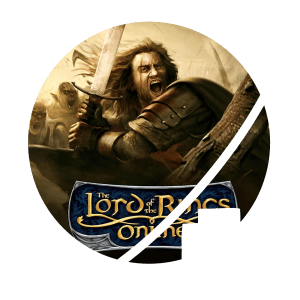
Review: Lord of the Rings Online – Standing Stone Games
Most people know the tale of Frodo Baggins and his quest to destroy an evil ring. But do they know of the many other unsung heroes of Middle-Earth fighting against the shadows? What happened in the rest of Eriador while Frodo was travelling to Imladris? How did the common folk of Rohan, Gondor and the Dale-lands survive during the War of the Ring and thereafter? And who took control of the Dark Lord’s lands after his downfall?
In Lord of the Rings Online you embark on your own journey, discovering secrets and realms no one has ever seen before.

Review: I Am Legend – Richard Matheson
In this 1954 novel that arguably laid the groundwork for today’s zombie apocalypse genre, Robert Neville is a lone survivor in a post-apocalyptic world where everyone who is not dead has turned into a bloodsucking monster. Having lost everything to live for, he sits behind the walls of his fortified house, listens to Chaupin to drown out the cries from the dark, and drinks too much whiskey, trying to find meaning in staying alive.

Review: Howl’s Moving Castle – Diana Wynne Jones
On a normal day selling hats in the shop, hatmaker Sophie has the bad luck to be cursed by a witch to look and feel like an old crone. Previously having resigned herself to her dull fate, she now promptly leaves the shop and knocks on the door of the wizard and notorious womanizer Howl to get her curse lifted. She comes to an agreement with the fire demon living in Howl’s hearth instead.

Review: Dune: Part Two – Denis Villeneuve
Having joined a band of Fremen guerillas, Paul Atreides, now Duke of Arrakis, needs to find a way to avenge the death of his father and friends. But how can he strike back at the Harkonnens, or even the Emperor, from the depth of the desert? His mother believes the key to lie with the Bene Gesserit prophesy of the Lisan al-Gaib, the off-world prophet foretold to lead the Fremen to paradise. But along that path lie many dangers, and Paul is reluctant to follow it.
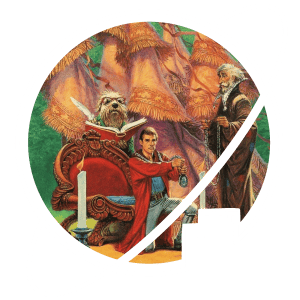
Review: Magic Kingdom for Sale: Sold! – Terry Brooks
Ben Holiday, a depressed lawyer whom has lost his joy in life after losing his wife and unborn child in a car accident, gets the unique offer to buy a magical kingdom called Landover. Though Ben thinks this offer is too good to be true, he knows one thing for sure: he’s got nothing left to lose. He might as well seek out what this so-called kingdom entails, no?
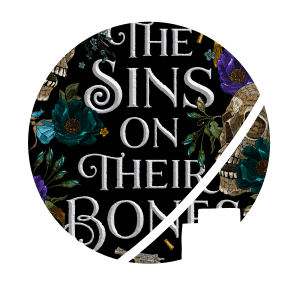
Review: The Sins on Their Bones – Laura R. Samotin
Dimitri used to be the Tzar of Novo-Svitsevo – until he was usurped by his husband Alexey, who turned out not to just be abusive, but also a dark sorcerer. Having lost his husband as well as a civil war, Dimitri has fallen into depression and is now in exile, holed up in a foreign city with a handful of his most loyal followers, trying to think of a way to kill an immortal man and put Dimitri back on the throne of his empire. Perhaps the most important of those followers is Vasily, Dimitri’s former spymaster, who must find a way to infiltrate Alexey’s court – while also navigating complex feeling towards Dimitri. Alexey, meanwhile, is trying to forget Dimitri – and to focus on his plans for world domination.









